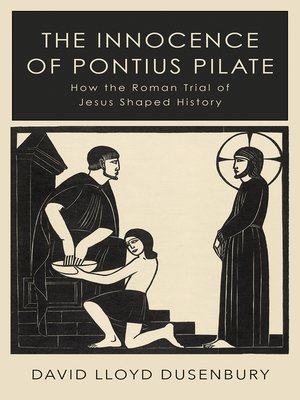The Innocence of Pontius Pilate
ebook ∣ How the Roman Trial of Jesus Shaped History
By David Lloyd Dusenbury

Sign up to save your library
With an OverDrive account, you can save your favorite libraries for at-a-glance information about availability. Find out more about OverDrive accounts.
Find this title in Libby, the library reading app by OverDrive.



Search for a digital library with this title
Title found at these libraries:
| Library Name | Distance |
|---|---|
| Loading... |
The gospels and ancient historians agree: Jesus was sentenced to death by Pontius Pilate, the Roman imperial prefect in Jerusalem. To this day, Christians of all churches confess that Jesus died 'under Pontius Pilate'. But what exactly does that mean?
Within decades of Jesus' death, Christians began suggesting that it was the Judaean authorities who had crucified Jesus—a notion later echoed in the Qur'an. In the third century, one philosopher raised the notion that, although Pilate had condemned Jesus, he'd done so justly; this idea survives in one of the main strands of modern New Testament criticism. So what is the truth of the matter? And what is the history of that truth?
David Lloyd Dusenbury reveals Pilate's 'innocence' as not only a neglected theological question, but a recurring theme in the history of European political thought. He argues that Jesus' interrogation by Pilate, and Augustine of Hippo's North African sermon on that trial, led to the concept of secularity and the logic of tolerance emerging in early modern Europe. Without the Roman trial of Jesus, and the arguments over Pilate's innocence, the history of empire—from the first century to the twenty-first—would have been radically different.







